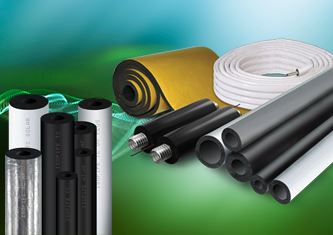
ISOPIPE integrated insulation systems for energy saving

The environmental impact of insulating materials in building life cycle, depends on two factors: production impacts and energy savings. EU research shows that buildings account for around 40% of the EU's total energy use and CO2 emissions (60% in Greece). Eurostat data shows that 39% of energy is consumed by households and commercial buildings, highlighting the role of insulation in reducing energy consumption and greenhouse gas emissions.
ISOPIPE SA founded in 1997, specializes in producing synthetic expanded elastomeric insulation material NBR with a closed cell structure of 98.5%. In oversized installations, as railway stations and shipping, specialized sealing and thermal protection solutions are produced and distributed. They also have certification for use in infrastructure, including indoor parking lots, train depots, airport hangars, boiler rooms, and logistics warehouses. It does not transmit flame in case of fire, considering as an ideal fireproof for compartments and hazardous areas in buildings located even in earthquake zones. ISOPIPE HT-HF products are certified for use in hospitals, schools, laboratories, museums, since they are manufactured without CFC, HCFC, or HFC. For air duct applications requiring insulation to prevent heat or cold loss and water vapor condensation on cold sides, especially in summer, we use ISODUCT rolls or sheets. ISOSYSTEM is another innovative product with a diagonal cut in the insulation sheet, making it easier to install for XL scale applications. ISOROLLS are available with or without self-adhesive, in silicone paper, and with a Polyolefin cover if needed.
The unique ISOPIPE’s production plant in Greece with distinctions from official bodies and world prestige on broad range of innovative products, stands out in the field of integrated synthetic rubber insulation systems for high demand installations.
For more information, please read the article, "Download" icon.

